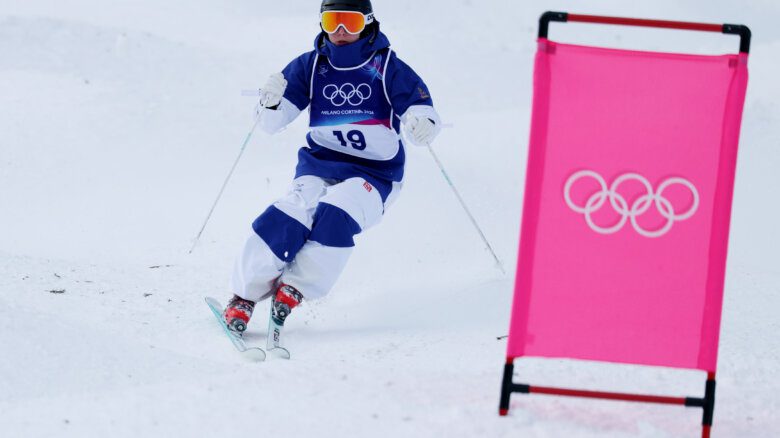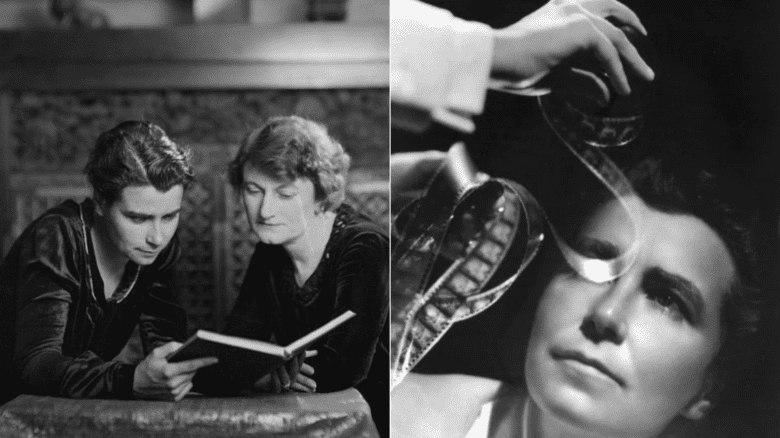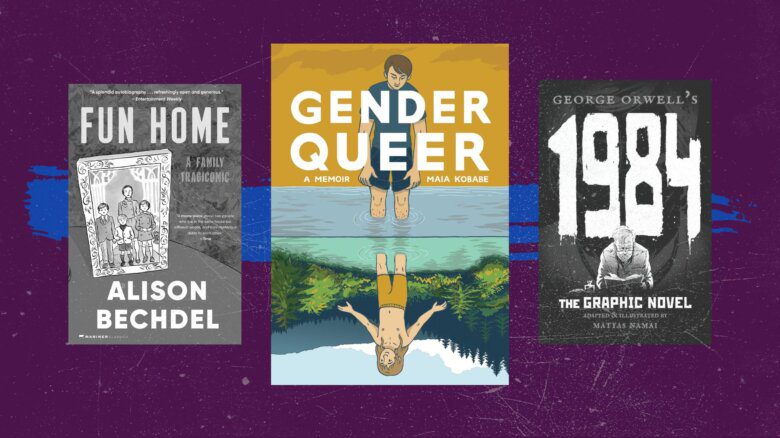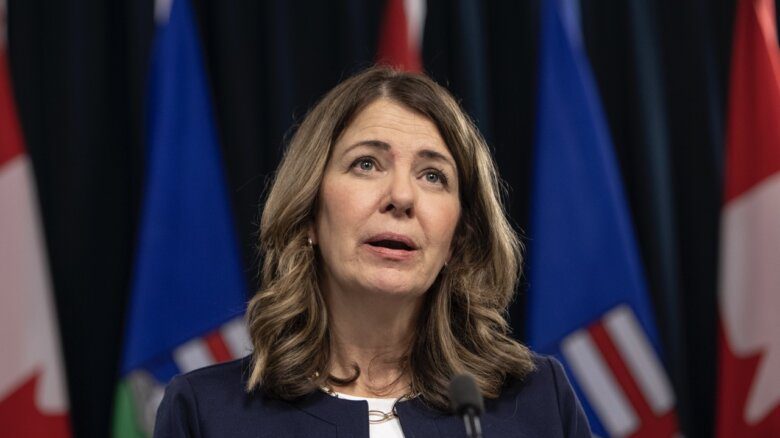Halal Bae is a political force to be reckoned with. Long before the drag performer was cast on Canada’s Drag Race, she was well-known in Toronto for performances tackling social issues like the police’s failure to protect queer folks and calling out racism in the local drag scene. In 2020, she was even named the city’s best drag performer by NOW Magazine.
Bae’s Episode 1 sashay away from the competition shocked fans and commentators (including Xtra’s own Kevin O’Keeffe, who called it a “highly suspect elimination”). It shocked Bae, too. She told Xtra she thinks she won not only the lip sync, but the entire episode.
After her elimination, Bae caught up with Xtra for After the Sashay to discuss who she thought should have been in the bottom instead of her, representing Muslim queers and why production wasn’t ready for such a fiercely political queen.
Halal! I hate seeing you here week one.
You know, so does everybody else.
Reddit thinks you were robbed. Were you?
One hundred percent! Robbed blind, left dead in the streets like a raccoon. They did me dirty!
Should Fierce have been in the bottom?
Oh, 100 percent, Fierce should have been in the bottom. Her garment was not as good as mine, she had help from every single person in the Werk Room, she didn’t really serve it. I mean, it was a piece of fabric wrapped around her waist.
But you know what? She’s loud and she causes drama, so she’s good television. I think that’s why they kept her … Canada doesn’t really want an outspoken, pro-Palestinian queen on the show.
You think Canada’s not ready?
Canada doesn’t even recognize Palestine as a state, or it having any autonomy whatsoever. Canada, as a country, has been staunchly pro-Israel since its inception. We’re not even allowed to talk about Palestinian issues or say anything that doesn’t, you know, straddle the talking points Canada puts out there.
I do think there was a lot of fear behind the scenes of me doing or saying something that goes against the grain.
In the trailer for this season, we got a glimpse of a dress you wore that says “Stop Displacing Us.” Can you talk about the meaning behind that look?
My grandmother is Palestnian—my entire mom’s side of the family [is]. When the occupation started in the 1940s, she was kicked out of her home in Jerusalem. So was the rest of my family. That occupation continues to this day.
The reason I wanted to bring that dress to the main stage was to be able to show that it’s still going on … it’s an occupation that’s been happening for almost 70 years that seems to be forgotten.
What kind of reaction did you receive to people seeing that dress?
I got a very mixed bag of reactions. Ever since my [casting] announcement, I haven’t been shy about being political, I haven’t been shy about being pro-Palestinain, pro-human rights, really—it’s a human rights issue. I’ve definitely got a lot of hate from Zionist groups, Zionist lobbies, both here and abroad that are calling me all kinds of things, sending me a lot of death threats, a lot of hate.
I obviously have no issue with the lives and the prosperity of Jewish people … I just want to be able to get some respect and some recognition of Palestinian autonomy and their lives. I don’t think that’s a lot to ask for.
You spoke on the show about being queer in a majority Muslim country. What does it mean to you now to represent as a Muslim-born queer person on TV?
Before it got announced, that was one thing I was very afraid of. You’re going against a lot of long-held beliefs in that region that go [back] hundreds of years, just as Christianity and other religions have opposed queer issues and rights in the past.
I’ve received nothing but support and love and admiration from people in my community, from people in the Middle East, from Muslims living abroad, Muslims living in the Middle East, as well, who are watching the show and are like, “You’re inspiring me to live authentically, to create a conversation.”
Your drag performances often tackle political issues like police brutality. How do politics inform your art?
I’ve always been politically driven. Coming, again, from the Middle East, where voting or your ability as a populist to really engage in meaningful change at a government is not as free, not as open, coming here, becoming a citizen, being able to actually influence change—real change—to people’s lives and their situations: it’s a privilege that I don’t take lightly.
That’s really why I wanted to bring it to the forefront and bring it to the Canada’s Drag Race stage with the hopes of one day becoming an MP and actually making change.
Is a political run really in your future?
It really is! By virtue of me living here in Toronto, especially in the riding of Toronto Centre, it’s very, very queer, and it’s very, very Muslim. It’s a divide down the middle in this riding. I’m both of those things. I feel like I can relate to that immigrant, Muslim story of being an outcast, of being put on the fringe of society by both sides.
I think I can really make a lot of change here, and I’m starting to put out feelers. If you have a connection to [NDP Leader] Jagmeet [Singh], holler!
You’re very outspoken about racism in drag and the wider queer world. I wish we’d got to see more of that side of you on the show. Can you talk about what it’s like to be QTBIPOC in the LGTBQ2S+ community?
It’s really a much larger conversation to be had within the community. You might think that you’re progressive and doing your part, [but] you’re not. You have to actively work on it. There are behaviours that you have to continuously unlearn. There are new ideas that you have to keep adapting to. That can be really, really hard.
It can also be really hard for television. I think Canada’s Drag Race prefers to have a sanitized version of what coloured people’s lives are, and a sanitized version of immigration—oh, you came here and life was amazing.… A lot of the BIPOC performers will agree with me and tell you they felt stifled, that there are issues that still need to be worked on in production, that there are a lot of things you can’t do and can’t say. There’s a lot that goes into it and I think even me going home first has a lot to do with that conversation as well.
You’ve been vocal in the past about Drag Race needing to diversify. We’ve now seen trans contestants like Gottmik and Kylie Sonique Love. What’s the next step for the show becoming more inclusive?
What a great addition kings would be to the show! I mean, come on. Drag is a play on gender. It doesn’t really matter if you’re cosplaying a queen or king. The bounds are endless and I think there’s so much more we can represent.
You had a kai kai with Jada! Is there any future to that romance?
I don’t think it made it to the show, but when I was on the show I made it clear I’m a poly individual and I have affections in my life. Never say never! Jada’s one of the most humble, sweet, kind people you’ll ever meet.
Did you have any other Season 3 crushes?
Kaos’s butt needs to get a shout-out. As soon as she took off her drag, I was like, “Wait, that’s your actual butt? Stop! How?” They’re definitely another person to look out for. Come on, they’re sexy.
Do you think you won that lip sync?
I think I won that episode! Bom should have been the runner-up, I should have won. I think I gave it everything I could, I think I did Nicki proud … I think I did well and I should have stayed, but that’s how the cards were dealt.
Last question! What’s next for Halal Bae?
The thing I’m going to delve most into is my political action work, my social work, community building and working toward that run for office. I really do want to represent my community, I want to put in the work and I think having me as a rep for queers and Muslims in the city would be something of value.
Interview has been edited for length and clarity.
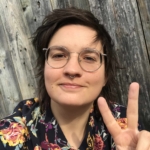

 Why you can trust Xtra
Why you can trust Xtra